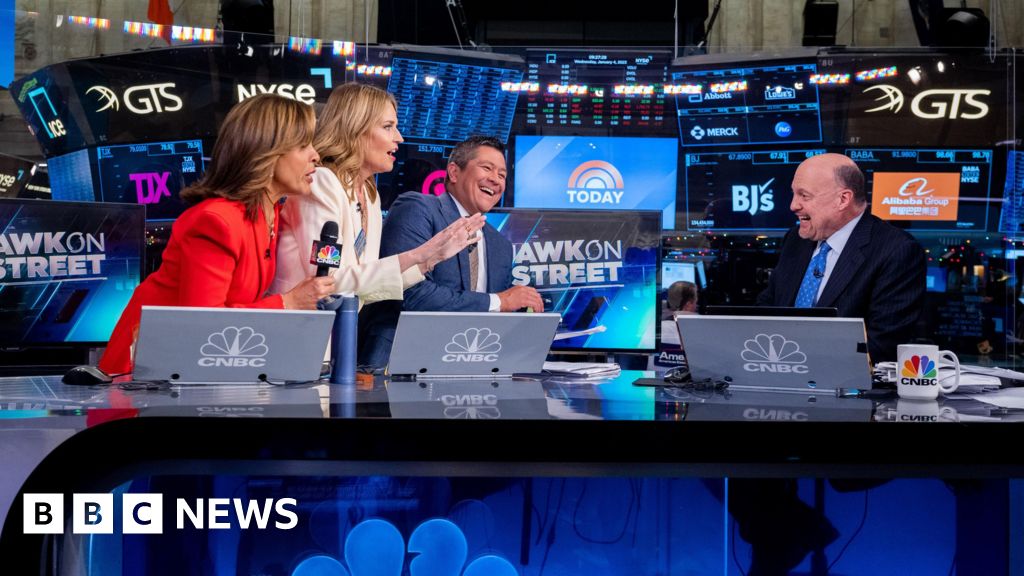More than two years after BlackRock ran into a buzz saw of criticism from US conservatives over its advocacy for sustainable investing, the world’s largest money manager is attempting to change the subject.
Chief executive Larry Fink has not used the word “climate” on an analyst call since January, and he mentioned climate, sustainability or the word green just eight times — out of 11,000 words — in his closely watched annual letter in March.
These days, the $11.5tn asset manager is working hard to highlight its pension and infrastructure offerings. Fink headlined the March letter “time to rethink retirement” and used variations of the word “retire” 98 times. Back in 2020, he mentioned retirement just twice in his letter to clients, while sustainability and related words appeared more than 60 times.
BlackRock has been advertising its work on retirement in high-profile American political and financial newsletters, including campaigns this month in Semafor and the Financial Times’ sister publication Ignites.
The group has also been talking extensively about its plans for Global Infrastructure Partners, the alternative asset manager that it purchased for $12.5bn earlier this year.
“It is a practical repositioning . . . an adaptation to a very US context,” said Pierre-Yves Gauthier, founder of research house AlphaValue.
BlackRock said that it is merely responding to what it hears from clients. It reported record inflows and assets under management for the third quarter, and the share price hit an all-time high earlier this month.
“We focus our global business on the topics that are the most important to our clients and we evolve in anticipation of our clients’ needs. Over the past five years, these have included sustainability, retirement and infrastructure, among others,” BlackRock said, adding that it has received nearly $2tn in net new business over that period.
The money manager continues to offer sustainable investments to clients who want them, and those offerings reached a record $1tn in assets under management this year. It has also been a huge player in the retirement market for years — half of its assets under management are from various forms of pension pots and it is the largest independent manager of US defined contribution plans, known as 401ks.
Much of its recent focus on infrastructure has included decarbonisation and green energy options, including a high profile $550mn investment in a direct air carbon capture project and a new $30bn fund with Microsoft aimed at building data centres and the energy needed to run them.
But the money manager has also made a concerted effort to change its external profile since Republican politicians started using it as a punch bag.
Beginning in 2022, Texas, West Virginia and other states put the company on boycott lists for allegedly being “hostile” to fossil fuel and erstwhile presidential candidate Vivek Ramaswamy alleged earlier this year that BlackRock was using its power as a large shareholder in most US companies to push a “woke capitalism” agenda.
BlackRock hired a new head of corporate affairs, John Kelly, formerly of Starbucks and Microsoft, and he brought on Leigh Farris, ex-Carlyle and Goldman Sachs, to head up communications, including social media. Kelly also revamped the money manager’s Washington and state government lobbying with two more Goldman Sachs hires, Joe Wall and Jane Moffat.
Fink has also stepped up his personal courting of Republican officials and said last year that he had stopped using the term ESG, which stands for using environmental, social and governance factors in investing, because it had become too politicised.
In February, he made a trip to Texas in February to appear at an energy investment summit. BlackRock said that it has pulled in $53bn in net new assets from institutional clients in Texas since the start of 2022, despite the official blacklisting.
Analysts noted that BlackRock’s shift in tone also coincided with several business innovations that had been in the works.
BlackRock unveiled a new retirement offering in April that seeks to provide an answer to some of the retirement insecurity problems that Fink had highlighted in his letter a month earlier.
Four years in the making, the “LifePath Paycheck” programme makes it easier and cheaper for retirees with BlackRock 401k accounts to use part of the money they have saved to buy annuities that will provide them with a guaranteed income stream.
“To us it makes sense that they are not pounding the table any more,” on sustainability, said Jason Kephart, who analyses BlackRock for Morningstar. “They haven’t pulled the plug . . . They just aren’t talking about it.”
“Retirement will reach more people without creating as much backlash,” he added.
At the same time, BlackRock has been rolling out its “Voting Choice” programme that allows its clients more say on how their shares are voted on proxy ballot questions about climate and other issues. The owners of less than one-quarter of the $2.8tn in eligible assets have taken BlackRock up on the offer, underscoring its message that it is doing what its customers want.
BlackRock’s support of environmental and social shareholder proposals has tumbled sharply from 47 per cent in 2021 to 4 per cent this year — a drop the stewardship team attributes to the proliferation of proposals that are too prescriptive or are not in the financial interest of shareholders.
For clients who still want sustainability offerings, the group has rolled out a new activist voting policy for its climate-focused funds that explicitly considers efforts to limit the average global temperature rise to 1.5C above pre-industrial level.
“Our job is to be listening to our clients . . . Our job is to be responsive to their wishes because it is their money,” Fink said at a conference earlier this month.
Credit: Source link











